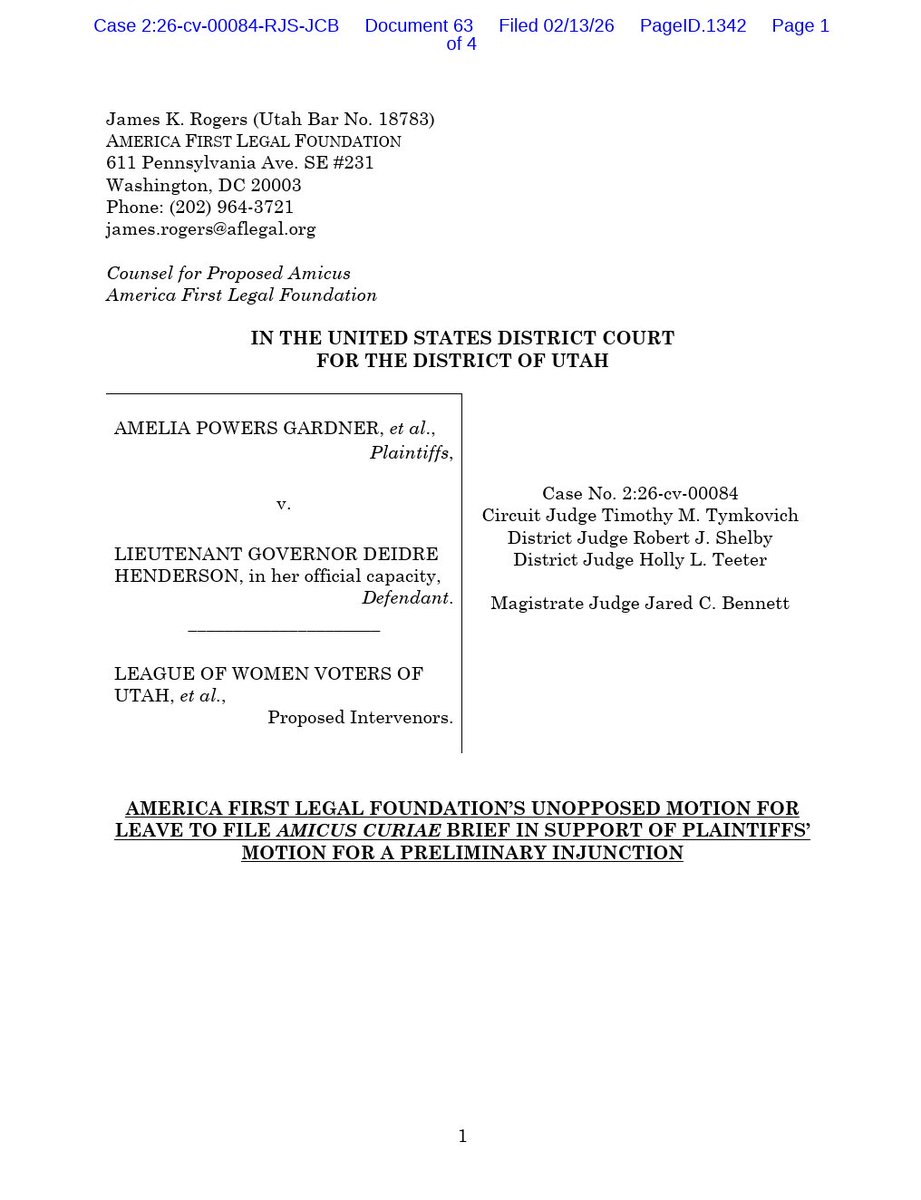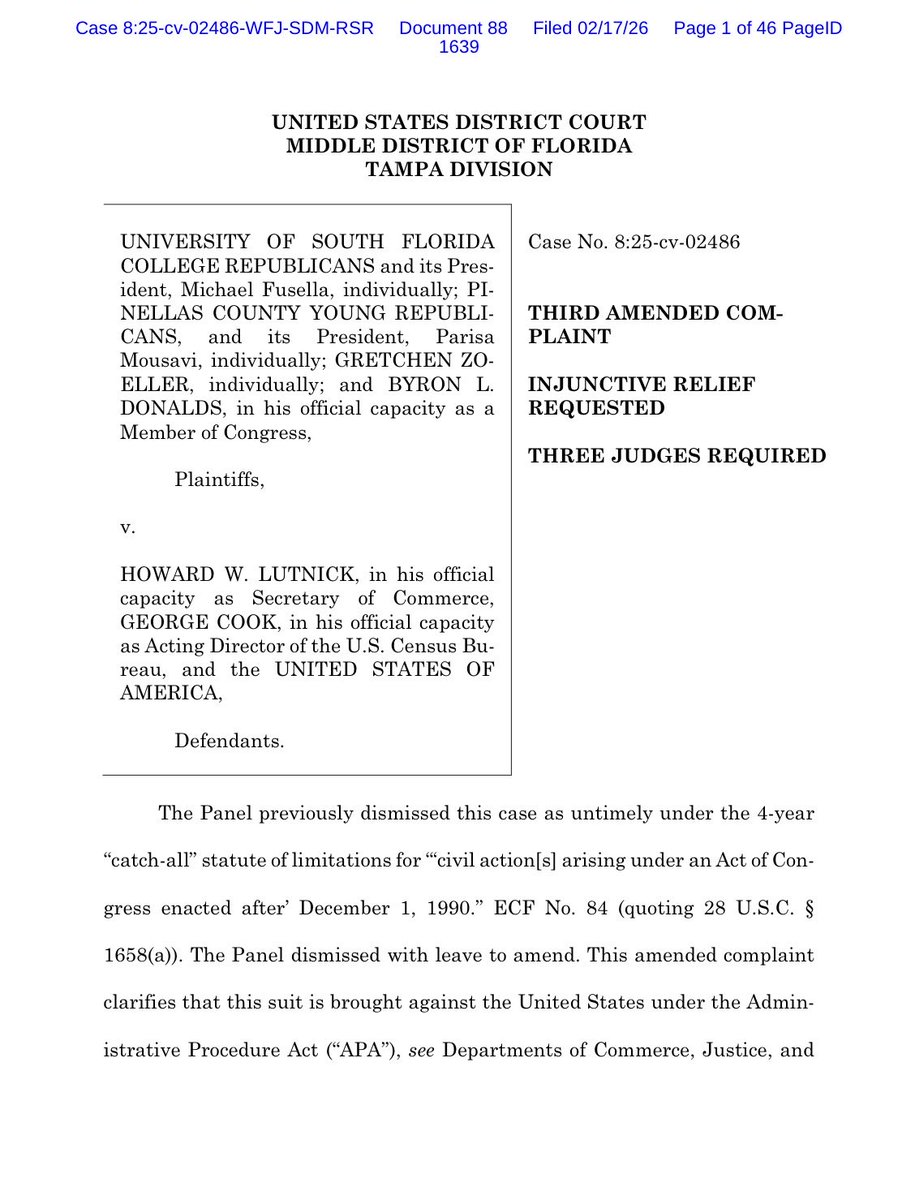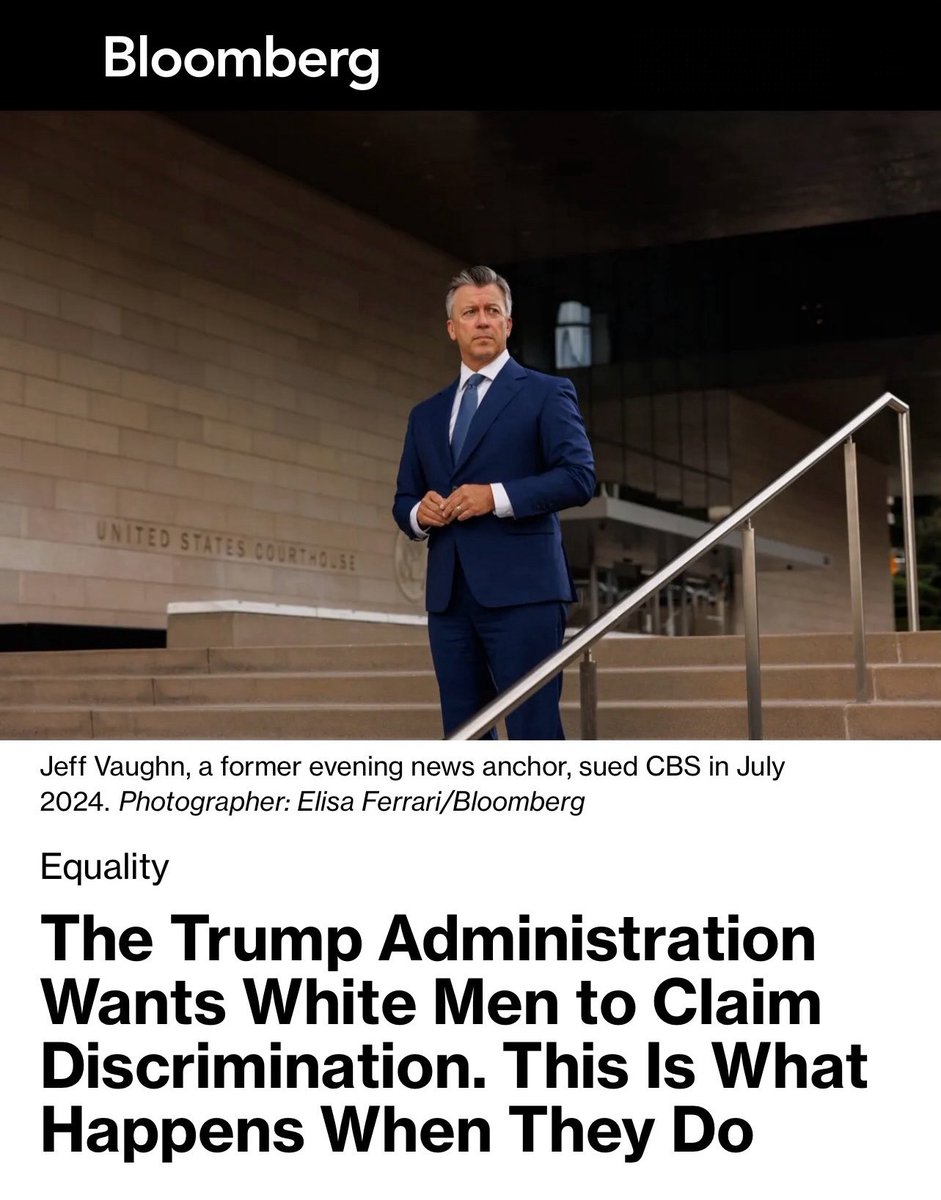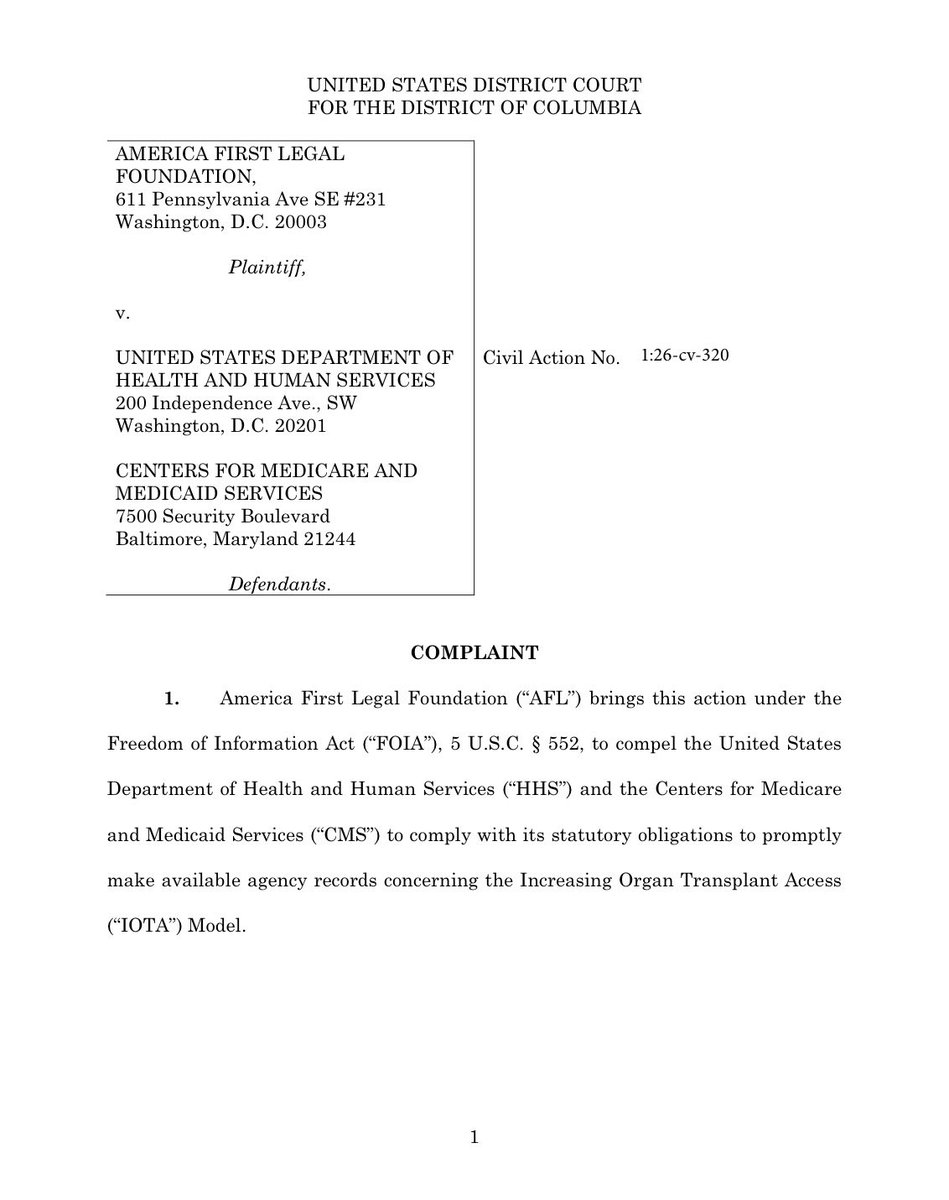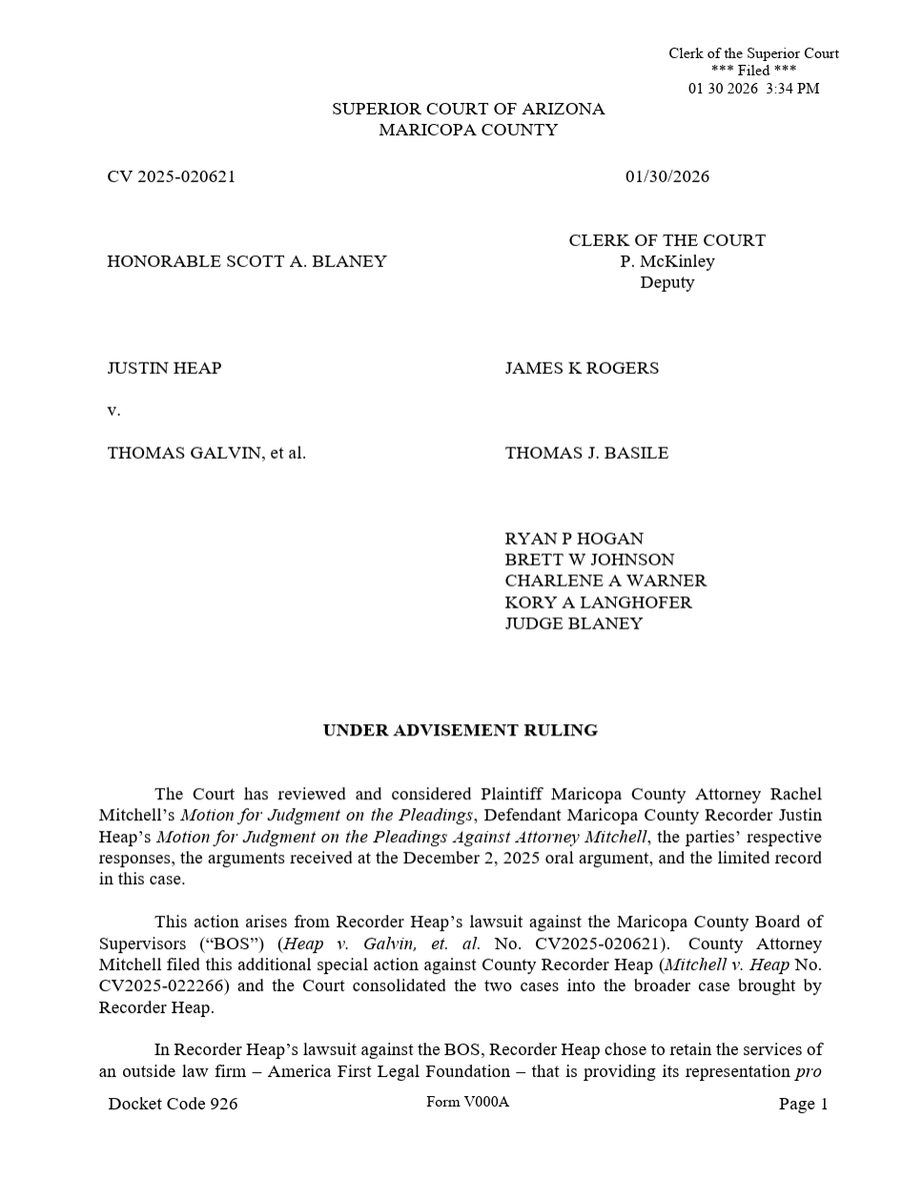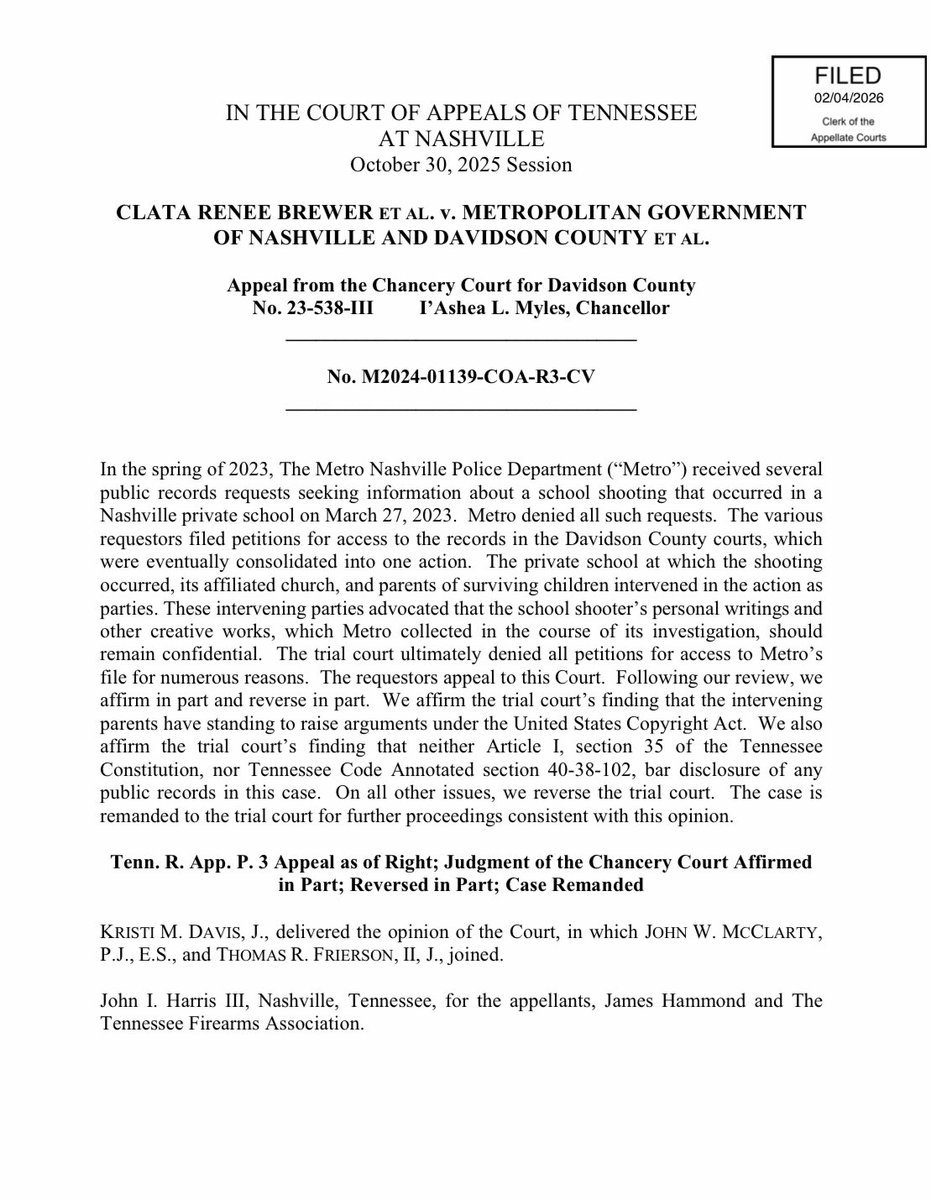/1🚨LITIGATION BOMBSHELL — we sued the Cybersecurity and Infrastructure Security Agency, the censorship arm of DHS.
Our lawsuit unearthed new docs showing that the deep state knew the risks of mass mail voting in 2020 but censored these criticisms as “disinformation.”
THREAD:
Our lawsuit unearthed new docs showing that the deep state knew the risks of mass mail voting in 2020 but censored these criticisms as “disinformation.”
THREAD:

/2 By September 2020, the Cybersecurity and Infrastructure Agency (CISA) was aware that the evidence established that in-person voting did not increase the spread of COVID-19.
CISA was also aware that mass “vote-by-mail” schemes posed “major challenges,” including “the process of mailing and returning ballots,” the “high numbers of improperly completed ballots (figures not yet released),” and “the shortage of personnel to process ballots in a prompt manner.”
CISA was also aware that mass “vote-by-mail” schemes posed “major challenges,” including “the process of mailing and returning ballots,” the “high numbers of improperly completed ballots (figures not yet released),” and “the shortage of personnel to process ballots in a prompt manner.”

/3 Despite its awareness of mail-in voting risks, absentee voting challenges, and the harmlessness of in-person voting, CISA continued supporting the unprecedented voting policy changes implemented across the states in 2020. 

/4 By October 2020, CISA had created a chart specifying six significant fraud risks presented by mail-in voting:
1. Implementation of mail-in voting infrastructure and processes within a compressed timeline may also introduce new risk.”
2. “For mail-in voting, some of the risk under the control of election officials during in-person voting shifts to outside entities, such as ballot printers, mail processing facilities, and the United States Postal Service.”
3 “Integrity attacks on voter registration data and systems represent a comparatively higher risk in a mail-in voting environment when compared to an in-person voting environment.”
4. “The outbound and inbound processing of mail-in ballots introduces additional infrastructure and technology, increasing potential scalability of cyber attacks.”
5. “Inbound mail-in ballot processes and tabulation take longer than in-person processing, causing tabulation of results to occur more slowly and resulting in more ballots to tabulate following election night.”
6. “Disinformation risk to mail-in voting infrastructure and processes is similar to that of in-person voting while utilizing different content. Threat actors may leverage limited understanding regarding mail-in voting processes to mislead and confuse the public.”
1. Implementation of mail-in voting infrastructure and processes within a compressed timeline may also introduce new risk.”
2. “For mail-in voting, some of the risk under the control of election officials during in-person voting shifts to outside entities, such as ballot printers, mail processing facilities, and the United States Postal Service.”
3 “Integrity attacks on voter registration data and systems represent a comparatively higher risk in a mail-in voting environment when compared to an in-person voting environment.”
4. “The outbound and inbound processing of mail-in ballots introduces additional infrastructure and technology, increasing potential scalability of cyber attacks.”
5. “Inbound mail-in ballot processes and tabulation take longer than in-person processing, causing tabulation of results to occur more slowly and resulting in more ballots to tabulate following election night.”
6. “Disinformation risk to mail-in voting infrastructure and processes is similar to that of in-person voting while utilizing different content. Threat actors may leverage limited understanding regarding mail-in voting processes to mislead and confuse the public.”

/5 While CISA saw the “Implementation of mail-in voting” in “a compressed timeline” as a top risk, it was also aware that last-minute “Mail-in Voting 2020 Policy Changes” were being implemented across the states. 

/6 CISA shared these findings in an “unclassified media tour” on the Friday before Election Tuesday.




/7 Yet, The Washington Post and other similar outlets covered up the evidence and focused on CISA’s “independence from Trump” and CISA Director Chris Kreb’s “statements about the security of mail-in ballots” that “directly contradict” Trump.




/8 Of all the risks it identified, CISA appeared to focus by far the most on monitoring and censoring the mail-in voting risk “narrative.”
Keep reading…
Keep reading…
/9 CISA apparently contracted Deloitte to report on “Daily Social Media Trends” relating to the U.S. Election — including narratives relating to “Vote-By-Mail” — and to flag specific social media posts for CISA’s awareness and attention.
/10 For example, Deloitte reported to CISA that:
1) Twitter flagged President Trump’s post that there are “big problems and discrepancies with Mail-in Ballots.”
1) Twitter flagged President Trump’s post that there are “big problems and discrepancies with Mail-in Ballots.”

/11 2) “A conservative online activist claimed that Twitter is censoring his tweets about voter fraud to help the Democratic presidential nominee.”
/12 3) President Trump “retweeted a political pundit who accused a Democratic Congressional candidate of ‘election fraud’ after thousands of ballots were mistakenly sent to his district.”
/13 4) “The Governor of Texas quoted an article from a local news outlet on the state’s recent history of voter fraud convictions and claimed that it reveals “Mail ballot vote fraud in Texas.”
/14 5) “A conservative pundit accused Twitter of ‘SUPPRESSING’ a story about the Democratic presidential nominee’s son to help the nominee win the election.”
/15 and 6) “A conservative online activist accused Twitter of censoring her posts about voter fraud she is ‘witnessing here in Nevada,’ and expressed her frustration with Twitter’s disclaimers stating that mail-in ballots are secure.”
/16 See Deloitte’s “Elections Daily Digest” from October 27, 2020, which include examples as listed above.






/18 Deloitte’s reports provided CISA with confirmation that its social media monitoring and censorship apparatus was working.
In Missouri v. Biden, the United States Court of Appeals for the Fifth Circuit found that “the platforms’ censorship decisions were made under policies that CISA has pressured them into adopting and based on CISA’s determination of the veracity of the flagged information.”
In Missouri v. Biden, the United States Court of Appeals for the Fifth Circuit found that “the platforms’ censorship decisions were made under policies that CISA has pressured them into adopting and based on CISA’s determination of the veracity of the flagged information.”

/19 CISA formed the Election Integrity Partnership (EIP) to censor Americans’ speech, as @JudiciaryGOP and its Select Subcommittee on the Weaponization of the Federal Government @Weaponization has found.
Director Krebs testified to Congress that “narratives are narratives,” so CISA didn’t differentiate between domestic and foreign activity on social media.
Director Krebs testified to Congress that “narratives are narratives,” so CISA didn’t differentiate between domestic and foreign activity on social media.

@JudiciaryGOP @Weaponization /20 According to congressional investigators, CISA targeted entire “narratives” for censorship. 

/21 In the EIP’s report touting the scope of its efforts, the EIP found that “[i]n the lead-up to the 2020 election, misinformation centered on mail-in voting.” Accordingly, EIP collaborators—including CISA—submitted “tickets” to flag social media posts relating to mail-in voting.
More on this “ticketing” process from @MikeBenzCyber below:
More on this “ticketing” process from @MikeBenzCyber below:

/21 More critical explanation from @MikeBenzCyber on how these “tickets” were implemented:
https://twitter.com/mikebenzcyber/status/1644377461239447553
/22 The evidence is that:
🚨CISA knew that in-person voting did not increase the spread of COVID.
🚨CISA knew mail-in voting was less secure.
🚨CISA nevertheless supported policy changes to encourage unprecedented widespread mail-in voting.
🚨CISA formed the EIP to censor narratives relating to mail-in voting.
🚨CISA broadly monitored social media to detect unapproved “narratives” relating to mail-in voting and to confirm that platforms were adequately censoring them.
🚨CISA knew that in-person voting did not increase the spread of COVID.
🚨CISA knew mail-in voting was less secure.
🚨CISA nevertheless supported policy changes to encourage unprecedented widespread mail-in voting.
🚨CISA formed the EIP to censor narratives relating to mail-in voting.
🚨CISA broadly monitored social media to detect unapproved “narratives” relating to mail-in voting and to confirm that platforms were adequately censoring them.
@MikeBenzCyber /23 CISA, and its media allies, interfered with and undermined the integrity of the 2020 Presidential election.
@MikeBenzCyber /24 This evidence has been obtained through AFL’s ongoing lawsuit against CISA to expose the activities of CISA’s Mis-, Dis-, and Mal-information (MDM) team leading up to the 2020 election. aflegal.org/afl-sues-two-f…
/25 AFL has previously exposed CISA’s partnerships with private sector tech companies to “pre-bunk,” “fact-check,” and remove speech and flag accounts, CISA’s use of the self-deleting messaging app “Signal” for “official” business, and CISA’s October 2020 false characterization of the Hunter Biden laptop story as a “QAnon Conspiracy Theory” linked to the 2016 “Pizzagate conspiracy.”
aflegal.org/america-first-…
aflegal.org/america-first-…
@MikeBenzCyber /26 More on these findings below:
https://twitter.com/america1stlegal/status/1717179236220289132
@MikeBenzCyber /27 AFL will keep fighting to expose the truth about 2020 election interference by CISA and other Deep State actors to protect our citizens’ rights and fortify our election integrity.
aflegal.org/bombshell-docu…
aflegal.org/bombshell-docu…
• • •
Missing some Tweet in this thread? You can try to
force a refresh





